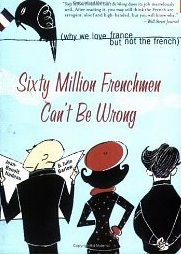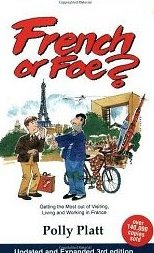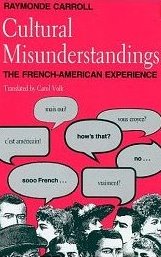I teach a course on Franco-American relations each year at a local college. The first day of class, I always ask the students to write down adjectives describing their impressions of French people. The typical responses range from “sophisticated” to “frugal”; many of the students choose their adjectives based on interactions with the French while traveling (and some of the students who take the course actually are French). As we move through the course, the students gain a clearer understanding of why the French are — or seem— “sophisticated,” “frugal,” or any of the other myriad adjectives on the list. I realized while preparing the course that my understanding of the French has been an amalgamation of my studies and travels (because, of course, nothing allows one to understand a culture better than going to the country).
If you’re planning a trip to France, or simply interested in what it means to be “French,” here are some of the best books I’ve come across for understanding the uniqueness and complexity of the intersections between French history, language, culture and daily life.
Sixty Million Frenchmen Can’t Be Wrong: Why We Love France but Not the French
 by Jean Benoit- Nadeau and Julie Barlow (Sourcebooks, Inc. 2003) Written by two Canadian sociologists, Jean Benoit- Nadeau and Julie Barlow, this collection of essays unpacks topics such as personal relationships, cuisine, the Algerian War, World War I and II, immigration, national identity and the concept of privacy. Intelligent yet accessible to anyone (you don’t have to have a background in French studies to get a lot out of this book), Sixty Million Frenchmen Can’t Be Wrong is an engaging read for the long flight across the pond.
by Jean Benoit- Nadeau and Julie Barlow (Sourcebooks, Inc. 2003) Written by two Canadian sociologists, Jean Benoit- Nadeau and Julie Barlow, this collection of essays unpacks topics such as personal relationships, cuisine, the Algerian War, World War I and II, immigration, national identity and the concept of privacy. Intelligent yet accessible to anyone (you don’t have to have a background in French studies to get a lot out of this book), Sixty Million Frenchmen Can’t Be Wrong is an engaging read for the long flight across the pond.
French or Foe?: Getting the Most Out of Visiting, Living and Working in France
 by Polly Platt (Distribooks, 2003)
by Polly Platt (Distribooks, 2003)
Written in a friendly tone with loads of examples taken from real life, Platt’s French or Foe focuses on everyday interactions in France. She takes a concept, such as education, describes some of the behavioral or customary differences in behavior between Americans and the French, and then provides a brief historical or cultural explanation of why this is so. Though some of her examples rely on generalizations that don’t always hold true, it is filled with practical advice for negotiating simple Franco-American relations.
Cultural Misunderstandings: The French-American Experience
 by Raymonde Carroll (University of Chicago Press, 1990)
by Raymonde Carroll (University of Chicago Press, 1990)
Cultural Misunderstandings, written by the celebrated sociologist, Raymonde Carroll (a French-born American citizen) and translated by Carol Volk is somewhat heavier (in terms of tone) than the previous two books, but just as useful. Carroll buttresses her intercultural arguments with examples taken from her experiences living in France and the United States. The book’s emphasis is on successful communication, which depends heavily on being culturally literate.
Consider these three books a “crash course” in French culture. They are sure to clarify some of your queries regarding the French and hopefully make you think of even more questions — and you’ll just have to travel to France to get them answered.


Comments